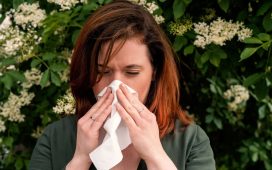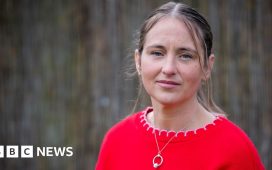The leader of Scotland’s doctors has called for rural GPs to get higher pay and special status to cope with a critical shortfall of medics in the Highlands, islands and rural counties.
Dr Iain Kennedy, the chair of the British Medical Association in Scotland, said urgent action was needed to reverse a crisis with doctors quitting rural practices in growing numbers, which had left many remote areas dependent on locum GPs who are paid £900 a day.
Kennedy said the NHS had to “positively discriminate” in favour of rural doctors and rural hospital consultants by investing heavily in better pay and better facilities, and by recognising their skills and importance.
Ministers should consider funding a new medical school in the Highlands to make it easier to attract local people to train as doctors, he said. “We need to start recruiting healthcare professionals from our own communities. We need to grow our own.”
He said the “stark reality” was that rural Scotland, in common with other remote parts of the UK, had a problem with providing enough medical care.
“We have huge vacancies in Orkney, Shetland, Western Isles, Grampian, Highland, Borders – both in hospital consultant vacancies and in GP vacancies. What we can see is that the rural-urban divide is getting greater and that of course is widening health inequalities,” Kennedy added. “We haven’t recruited enough doctors in general, across Scotland. When we have a shortage of doctors, rural areas and deprived areas are the first places to be affected.”
The latest NHS Scotland data shows that 42% of GP surgeries had vacancies across Scotland, but in the Western Isles 67% had vacancies, as did 56% in Shetland, 57% in Orkney, 54% in Tayside and 64% in Grampian. Recent BMA data has found Shetland, Orkney and the Western Isles have the highest GP vacancy rates per head of population in Scotland.
The Scottish government is also widely expected to miss its target to recruit 800 new GPs by 2027. Kennedy said even that target was too low, since many GPs now work part-time to cope with stress. He said at least 1,000 extra doctors were actually needed.
While some urban health boards also have higher than average vacancy rates, Kennedy said the work pressures on rural and island GPs were far greater. Their patients were far more dispersed, they may also run cottage hospitals, and they frequently had to provide out-of-hours emergency care.
after newsletter promotion
His city-based surgery in Inverness had nurses in the building, ambulances 10 minutes away and an emergency department two miles away, he said.
“[But] if I’m a rural GP, I am it. There isn’t a local hospital nearby. If you are having a heart attack, it’s a matter of me treating your heart attack. You are the doctor, you’re the healthcare assistant, you’re the nurse, you are the emergency service.”
Kennedy said a significant issue was that teenagers at private schools found it easier to win places at medical schools and their relative wealth made it easier to meet the costs of being a medical student.
The vast majority of rural children go to comprehensives, live further from medical schools and more often had to be financially self-sufficient. That is partly why Kennedy and other BMA leaders are lobbying Scottish government ministers to consider a Highlands medical school.
Dr Kate Dawson, an experienced GP on Benbecula in the Western Isles, helps run a surgery, an out-of-hours service and a cottage hospital. But she has been unable to recruit new doctors to replace two of her colleagues who have retired, so she is about to hand her contract back to the health board. BMA data shows increasing numbers of self-employed doctors in rural areas are doing so, forcing boards to run GP surgeries centrally, which costs more.
A recruitment crisis at a nearby GP surgery on Uist forced Western Isles NHS to greatly increase the pay on offer to attract new doctors. Dawson said many rural surgery buildings were in poor condition, which put off potential recruits, while rural housing was in very short supply and expensive.
The NHS and medical profession needed to recognise that rural doctors provided specialist services, she said. “The bottom line is money. I think it’s not properly recognised as a career path where you can get additional training [or] payment.”
A Scottish government spokesperson said ministers were trying to address the rural crisis by funding a new centre for remote and rural health care, with £3m over three years, and offering a £10,000 “golden hello” to new rural GPs and £20,000 bursaries for GP trainees.
“We are clear that patients who need to see a GP should always be seen, regardless of their location,” the spokesperson said. “The centre strives to improve rural workforce and retention and develop new and innovative services to deliver better results for patients.”











